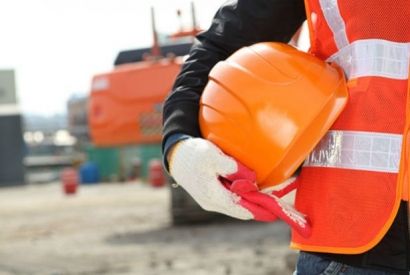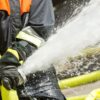- Empty cart.
- Continue Shopping
PROTECTIVE CLOTHING

Protective clothing is unique against the hazards found at the workplace.
Employers are supposed to make sure that they purchase these clothing and ensure they are comfortable and should meet Occupation Safety and Health Act (OSHA) so that to allow workers to complete their job effectively.
OSHA addresses the most important activities while choosing protective equipment on the job.
Accessing workplace hazards.
Not all workers need the same protective gear. This could be determined by the position of the worker at the workplace, the surrounding environment as well as the time of the day when work is being done.
An employer is supposed to be open while assessing hazards during this stage and should understand how these hazards could affect workers and the working environment as well.
Responsibilities to assess hazards should not only fall to one person or organization, but an employer should make sure they collaborate with employees to see what hazards are faced often. Other than only assessing the hazards at the workplace, employers are supposed to look at the tasks workers are completing daily.
Following is a list of potential hazard sources that could be helpful when determining risks and hazards at the workplace;
- Chemicals that could result in burns or respiratory hazards.
- Harmful dust that could result in scratches or burns to the eyes or lungs
- High temperatures could result in burns or ignition of protective equipment
- The motion of moving objects, machinery, or movement of personnel that could result in a collision with stationary objects
- Light radiation is produced from welding machines, brazing, as well as cutting, which could cause burns to the skin and eyes.
- Overhead objects that cause head bumping hazards
- Sharp objects that could lead to feet and hands piercing.
- Electrical hazards
Selection of proper PPE
Before the selection of PPE, employees should ask themselves if it is the only solution to the hazard. Oftentimes the collaboration of PPE used in conjunction with these analytical problem-solving techniques is the key to proper protection and remaining in compliance.
Rules and guidance in selecting protective apparel are more general due to the broad range of hazards. They can address such as heat, flame, arc, and exposure to toxic solids, vapors, liquids, and aerosols.
When choosing the right PPE, decisions can be made based on the following questions;
- What is the expected duration of contact with a hazard?
- From what direction is the contact with a hazard most likely?
- What is the probability of the hazard?
- What is the likely amount of contact with hazard?

Training for proper wear
Workers are supposed to make sure that they are properly sized and fitted with protective apparel.
Training is supposed to start with ensuring workers know what PPE is required and when. Training is supposed to include how to put on, remove, adjust and wear the PPE. Employees training is important workers who are comfortable with their PPEs are most likely to wear them. Those who continuously adjust or remove their PPEs are always at risk to be exposed to the assessed hazards of the work environment. Incorrect sizing of PPE also puts workers at risk of tripping or being caught up in their own clothing.
The limitation of PPE, use life, proper care, and maintenance as well as disposal of protective apparel must be covered when training with the PPE.
SEE ALSO; SAFETY FOOTWEAR IN KENYA
CONCLUSION
Providing workers with the right safety work wear is not only great but is a requirement of the Occupation Safety and Health Act. Having satisfied employees lead to an increase in productivity. Besides that, it portrays the company as compassionate about the welfare of its workers. Although the requirement of safe work wear is so valid, it is important to choose the right equipment. These do have the advantage of protecting employees while saving organizations unnecessary costs.
READ ALSO; SAFETY EYE WEAR
We safety Hub Enterprises ensures that we provide protective clothing that meets OSHA standards, 29 CFR 1910.132, ranging from head protection, hand protection, foot protection, eyes protection, respiratory protection, ear protection, and general body protection






